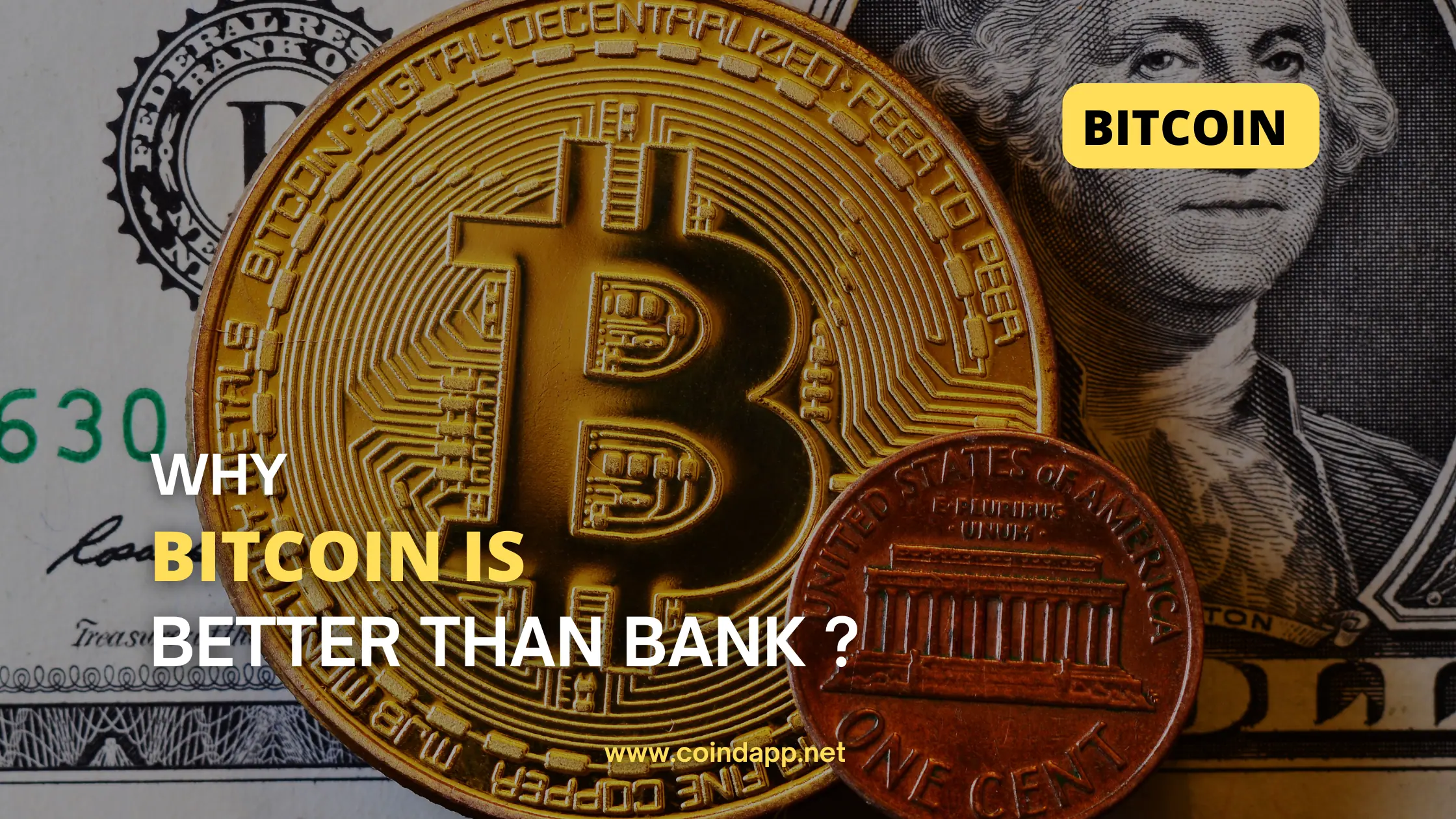Bitcoin is better than traditional banks because it offers greater financial freedom, lower transaction fees, and faster global transfers without the need for intermediaries. By relying on a decentralized blockchain network, Bitcoin allows users to control their money directly, making it more secure, transparent, and resistant to inflation compared to centralized banking systems.
Bitcoin is often compared to banks for good reason. As the world’s first decentralized digital currency, it stands as a revolutionary alternative to the traditional financial system. While banks have been around for centuries, Bitcoin brings something radically new to the table. But why is Bitcoin better than banks? In this article, we will break down the key reasons that make Bitcoin a superior choice for many people and businesses today.
Table of Contents
Core Differences Between Bitcoin and Banks
What is Bitcoin?
Bitcoin is a decentralized digital currency that operates without a central authority. Launched in 2009 by an anonymous individual or group known as Satoshi Nakamoto, Bitcoin allows users to transfer funds directly to one another via the internet without the need for intermediaries such as banks. Transactions are verified by a network of nodes through cryptography and recorded in a public ledger known as the blockchain.
How Traditional Banks Work
Traditional banks operate as centralized institutions that manage financial transactions, savings, and loans on behalf of their customers. These institutions rely on a central authority, like the Federal Reserve or European Central Bank, to regulate the supply of money. Banks earn revenue through fees, interest, and other financial services, but their centralized nature means customers often have less control over their funds.
The Decentralization of Bitcoin
Bitcoin’s Decentralized Nature
The biggest difference between Bitcoin and banks is decentralization. Bitcoin operates on a blockchain network, where every transaction is publicly recorded and verified by network participants (nodes). No single entity controls Bitcoin, making it immune to manipulation by governments or financial institutions.
How Banks are Centralized
Banks are centralized organizations, meaning that all decisions, transactions, and rules are controlled by a governing body. This centralization can lead to inefficiencies, higher fees, and sometimes corruption, as decisions are not always in the best interest of the public.
Bitcoin Offers Greater Financial Freedom
Control Over Your Money
With Bitcoin, you hold the keys to your funds. Unlike banks, where access to your money is regulated and can be frozen, Bitcoin gives you total control. This financial sovereignty is one of the major reasons why Bitcoin is gaining popularity, especially in regions with unstable governments or economic issues.
Peer-to-Peer Transactions
Bitcoin’s peer-to-peer system allows users to send money directly to each other without needing a bank or intermediary. This drastically reduces transaction times and costs, especially for international transfers.
Lower Transaction Costs
Traditional Banking Fees vs. Bitcoin Fees
Banks often charge significant fees for wire transfers, foreign transactions, or currency conversions. These can add up quickly, particularly for businesses conducting global transactions. Bitcoin, on the other hand, charges minimal fees, making it much cheaper to send money across borders.
How Bitcoin Reduces Cross-Border Transaction Costs
Bitcoin transactions are not subject to the same costly intermediaries as bank transfers. Sending Bitcoin from the U.S. to Europe or Asia can be done for a fraction of the price a bank would charge, often within minutes instead of days.
Speed of Transactions
Bank Processing Times vs. Bitcoin Transactions
Bank transfers can take anywhere from a few hours to several days, particularly for international transactions. Bitcoin transactions, however, are processed within minutes, regardless of location. This speed is especially crucial for businesses needing fast, reliable payment methods.
Bitcoin’s Role in Instant Global Transfers
Bitcoin enables instantaneous transactions around the globe, 24/7. Traditional banks, with their working hours and regulations, simply can’t compete with the efficiency of Bitcoin for global money movement.
Security and Privacy
Blockchain’s Security Measures
Bitcoin operates on a highly secure system called the blockchain. Each transaction is verified by multiple nodes and encrypted, making it virtually impossible to alter. This security makes Bitcoin a reliable and trustworthy alternative to traditional banking systems, which are often vulnerable to fraud and data breaches.
How Banks Manage User Data and Privacy Concerns
Banks store large amounts of personal and financial information, making them attractive targets for cyberattacks. Additionally, they often share data with governments and third parties, leading to privacy concerns. Bitcoin, on the other hand, allows for anonymous transactions, offering a level of privacy that banks simply cannot match.
Bitcoin is Borderless
How Bitcoin Operates Globally
Bitcoin operates without borders. No matter where you are, Bitcoin can be used to send or receive funds. This makes it an excellent tool for people in countries with limited access to banking services or unstable local currencies.
Restrictions in Traditional Banking Systems
Banks are often subject to local regulations and laws, which can restrict access to certain services, especially in countries facing economic sanctions or instability. Bitcoin circumvents these limitations by being accessible to anyone with an internet connection.
Risks and Challenges of Bitcoin
Volatility in Bitcoin
Bitcoin’s price volatility is one of its major drawbacks. While it offers significant benefits, its value can fluctuate dramatically, making it a risky investment for some.
Lack of Regulation Compared to Banks
While banks are heavily regulated, providing a safety net for consumers, Bitcoin operates in a much less regulated environment. This can lead to concerns about fraud, market manipulation, and security.
The Future of Bitcoin and Traditional Banks
Can Bitcoin Replace Banks?
While Bitcoin has the potential to revolutionize the financial system, it’s unlikely to completely replace banks in the near future. Banks still provide essential services like loans, mortgages, and other financial products that Bitcoin currently can’t match.
The Potential for Coexistence
More likely, Bitcoin and traditional banks will coexist, with each playing a distinct role in the financial ecosystem. As Bitcoin becomes more mainstream, banks may integrate cryptocurrency services, bridging the gap between these two financial systems.
Conclusion - Bitcoin is Better than Banks
In conclusion, Bitcoin provides numerous advantages over traditional banks, such as decentralization, lower transaction fees, and global accessibility. Its transparent blockchain technology ensures security and financial independence, making it a powerful alternative for those seeking greater control over their money. These factors contribute to Bitcoin’s growing popularity in an increasingly digital and borderless world.
However, Bitcoin is not without its challenges. Price volatility and limited regulation remain significant concerns, particularly for newcomers to the cryptocurrency space. While it may not fully replace banks, Bitcoin is clearly shaping the future of finance, offering innovative solutions to many of the issues present in conventional banking systems.
For more blogs, visit coindapp blog page. Join us on Facebook, Instagram, Twitter, and Telegram.


